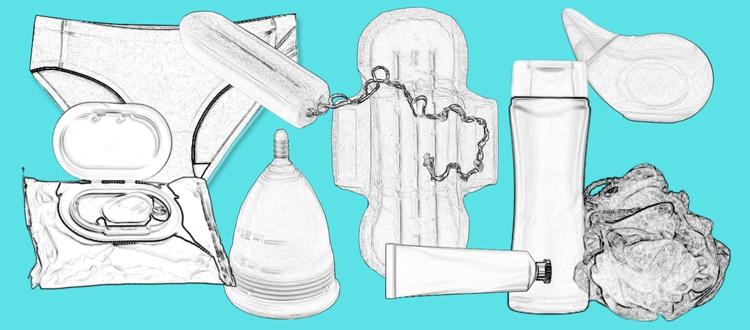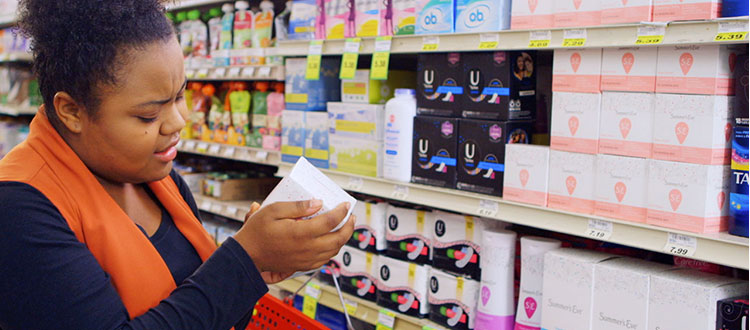Modernization of Cosmetics Regulation Act of 2022: MOCRA Explained
Modernization of Cosmetics Regulation Act of 2022 (MOCRA) is the first time federal cosmetics law has been updated in over 80 years. There are many requirements in the law that move the safety of cosmetics forward and will help advance salon worker health and safety. There are also some requirements that could have been stronger. Learn more!
‘The vagina is self-cleaning’ – so why do companies push hygiene products on Black women?
The Guardian By Paige Curtis “Racist advertising practices marketed vaginal cleansing products to Black women. Years later, they deal with the fallout … ‘Vaginal cleansers... Read More
New Bill Will Help Close Significant Gaps in Menstrual & Intimate Care Product Safety
Because of lack of government oversight, companies can even get away with not disclosing dangerous chemicals contained in these products. In fact, there is no federal law that requires manufacturers of menstrual care products to disclose any of the ingredients used in these products.
TAKE ACTION for Safer Menstrual and Intimate Care Products!
Recently, the Robin Danielson Menstrual Product and Intimate Care Product Safety Act of 2022 (HR 8724) was introduced in Congress. If passed, the bill requires a research program focused on studying the health risks of fragrance ingredients, pesticides, phthalates, titanium dioxide, and other ingredients used in these products.
Why You Should be Concerned About Intimate Care Products that Inhibit Lactobacilli
Recent testing raises a lot of questions and concerns about the impacts intimate care products are having on our bodies. Specifically, our testing looked at how products might be affecting the delicate balance of healthy bacteria (namely lactobacilli) in our vaginas.
Testing Reaffirms the Need for Improved Safety Standards for Vaginal-Use Products
New laboratory research has demonstrated that some intimate care products currently on the market can significantly inhibit the growth of lactobacilli, which are essential bacteria for a healthy vagina. An upset or imbalance of lactobacilli are linked to increased risks of bacterial vaginosis (or BV). BV is incredibly common — it is estimated that at least 75% of women in the U.S. will experience episodes of vaginitis at some point during their life.
This new testing joins the growing evidence linking the use of intimate care products to vaginal infections, and also raises questions on if the products many people are using to “self-treat” BV symptoms, may in fact be worsening the problem.
VIDEO: WVE Answers Your Questions on Intimate Care Products
WVE's Director of Science and Research answers some of your most asked questions on period health and intimate care products. Learn more about lubricants, ingredient safety, "odor" technologies and more!
The harmful myth of vaginal cleansing
Ms. Mayhem By Lexi Reich … “There’s an overall assumption that the ingredients that get used are just fine for our health; people have been... Read More
TAKE ACTION! Tell CEO’s of Intimate Care Products to End Toxic Products & Marketing!
TAKE ACTION NOW! Tell the CEO’s of intimate care products manufacturers they must be accountable for toxic marketing and toxic products! Heavily scented douches, wipes,... Read More
How are Menstrual and Intimate Care Products Regulated?
Menstrual and intimate care products are used on and in some of the most sensitive body tissue, yet there is very little regulation over the safety of these products.








